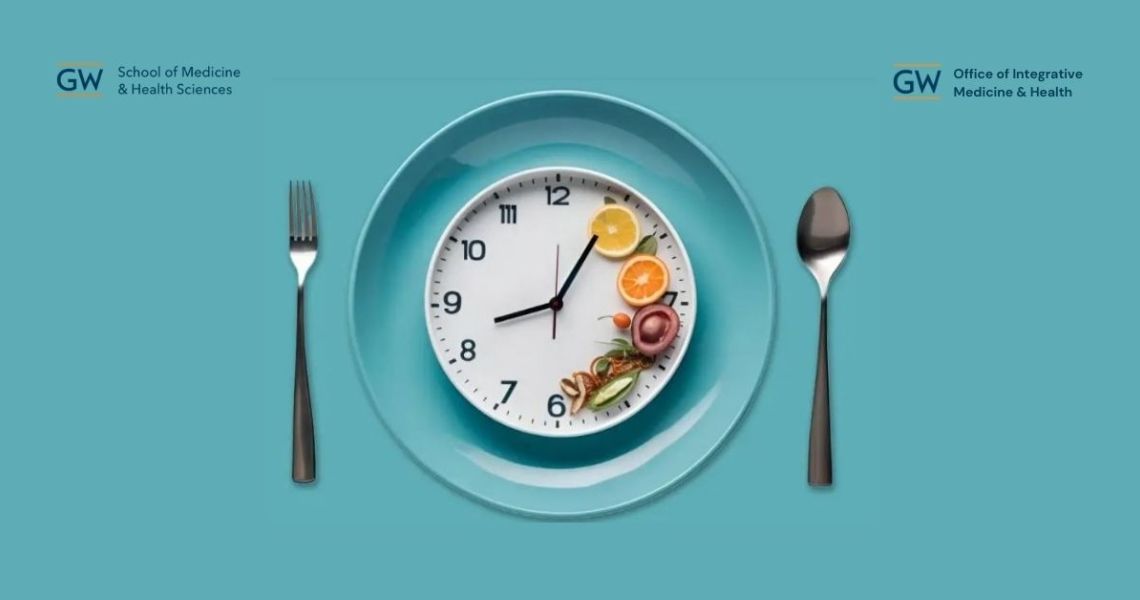We're pleased to announce the return of Valter Longo, PhD, renowned expert in aging and disease, director of the USC Longevity Institute, and developer of the fasting mimicking diet, to the 8th Annual Patrick and Marguerite Sung Symposium: Intermittent Fasting for Well-being on Friday, March 28, 2025, from 1–5 p.m.
Organized by the GW Office of Integrative Medicine and Health (OIMH), this free online symposium explores the scientific foundations and practical applications of fasting as a tool for enhancing well-being. Dr. Longo, author of "Fasting Cancer: How Fasting and Nutritechnology Are Creating a Revolution in Cancer Prevention and Treatment," is returning to the Sung Symposium for the second time. The other presentations explore fasting as it relates to well-being, gut and liver health, and eating disorders.
In line with our mission to advance integrative approaches to health, the Sung Symposium brings together leading experts in clinical practice, research, and education to foster dialogue on emerging and impactful topics in integrative health. The 2025 theme offers valuable insights to health professionals and healthcare consumers alike.
The symposium features four expert presentations and an interactive panel discussion moderated by Leigh Frame, PhD, MHS, chief wellness officer, GW Medicine, executive director, OIMH, director and research director, Resiliency and Well-being Center, and associate professor of Clinical Research and Leadership and Physician Assistant Studies, and co-director, Frame-Corr Lab at GW.
This symposium is attended by healthcare professionals, researchers, students, and practitioners in the integrative medicine field.
The Sung Symposium promotes the use of Integrative Medicine. This whole health approach to patient care gives providers the widest array of evidence-based health, wellness, disease prevention, and treatment options available. The OIMH was made possible with a generous donation of $500,000 by GW alumnus Patrick Sung, PhD, JD '77.
- Agenda
-
- Could a fasting-mimicking diet improve outcomes in cancer patients?
- Valter Longo, PhD, The USC Leonard Davis School of Gerontology
- Do time-restricted eating (TRE) / intermittent fasting (IF) promote well-being?
- Courtney Peterson, PhD, The University of Alabama at Birmingham Department of Nutrition Sciences
- The chronobiology of fasting: how feeding controls the gut microbiome, liver behavior, and more
- Leigh Frame, PhD, MHS, chief wellness officer, GW Medicine, co-director, Frame-Corr Lab, director and research director, GW Resiliency and Well-being Center, and associate professor in the departments of Clinical Research and Leadership and Physician Assistants Studies at the GW School of Medicine and Health Sciences.
- What you need to know about TRE/IF from an eating disorders expert
- Jesse L. Bakke, associate professor of biochemistry, Foundational Sciences Department, Central Michigan University College of Medicine, and Samantha L. Hahn, Ph.D., MPH, RD, Assistant Professor, Biology Department, Central Michigan University
- Panel Discussion (all)
- Could a fasting-mimicking diet improve outcomes in cancer patients?


